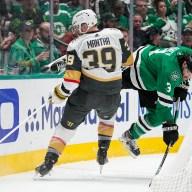LONDON – Britain launched its first sweeping inquiry into the unpopular Iraq war on Thursday – a potentially explosive national reckoning that will call ex-Prime Minister Tony Blair as a witness, and seek evidence from former White House staff.
John Chilcot, an ex-civil servant and inquiry chairman, said the study would expose errors in the build-up and tumultuous aftermath of the 2003 U.S.-led invasion. He vowed his panel wouldn’t shy from delivering embarrassing truths to key figures in London and Washington.
“If we find that mistakes were made, that there were issues which could have been dealt with better, we will say so frankly,” Chilcot told reporters.
But Chilcot’s panel – which includes four other officials, including Winston Churchill’s biographer and an ex-British ambassador to Russia – will only be able to issue rebukes and recommendations. It is not permitted to establish criminal or civil liability for mistakes.
“The inquiry is not a court of law and nobody is on trial. But I want to make something absolutely clear – the committee will not shy away from making criticism,” Chilcot said.
Prime Minister Gordon Brown asked Chilcot to examine the period from the Sept. 11, 2001 attacks on the United States through to the withdrawal of British troops from Iraq earlier this month. It will analyze prewar intelligence and postwar decisions on reconstruction.
Bereaved families and anti-war activists have long called for an inquiry to consider Britain’s role in a conflict that triggered massive protests at home and left 179 British soldiers dead.
Two previous studies into aspects of Britain’s decision to join the U.S.-led Iraq war already have been held, but both were denounced by critics who claimed their conclusions had little bite, or effect.
One cleared the government of blame for the death of David Kelly, a government weapons scientist who killed himself in 2003 after he was exposed as the source of a British Broadcasting Corp. report that accused Blair’s office of “sexing up” prewar intelligence.
A separate 2004 inquiry – in which Chilcot took part – into intelligence on Iraq also cleared Blair’s government, but criticized intelligence officials for relying on seriously flawed or unreliable sources.
Chilcot said his inquiry will call Blair, have access to all relevant British government documents, and seek information from decision makers in both Iraq and the United States.
“We certainly plan to have discussions, on as broad a basis as we can, and that must include clearly, people in the United States as well as elsewhere. Discussions and evidence sessions are not necessarily the same thing, and of course we have no power to compel witnesses here, let alone in foreign governments,” Chilcot said, indicating Bush-era officials won’t be called to testify in person.
Blair’s office said that the ex-British leader is prepared to give testimony, and to appear in public.
Though most evidence sessions are likely to be held in public, and some broadcast on television or the Internet, Chilcot said others will take place in private to protect national security – or to allow certain witnesses to be more candid.
“If there are difficult truths to be told they should be told in the light of day, not behind closed doors,” said opposition Conservative Party lawmaker William Hague.
Critics of the war say the inquiry should seek to prove whether or not Blair offered Bush an assurance as early as mid-2002 – before lawmakers voted in 2003 to approve U.K. involvement – that Britain would join the war.
Blair was dubbed Bush’s poodle over his support for the U.S.-led invasion and suffered domestically – his popularity ratings nose-dived, though he won a 2005 national election with a reduced majority.
Malcolm Chalmers, a former adviser to Britain’s Foreign Office, said the inquiry must address the decision to disband Iraq’s army and to remove government officials tied to Saddam Hussein’s Ba’ath party. He said it should also examine factors that contributed to the postwar insurgency.
“It has potential to generate useful lessons, specifically about post-conflict operations and the immediate aftermath of the war,” said Chalmers, now an academic with the London-based defencethink-tank , the Royal United Services Institute.
Despite a long public clamour for an inquiry, some Britons now acknowledge other issues – like mounting casualties in Afghanistan – have become more relevant. “Can we just move on please?” pleaded Marc Phipps, a 44-year-old doctor from Manchester, northern England.
Chilcot said the inquiry’s findings will not be published before next summer, meaning the conclusions won’t be known before Britain’s next national election – which must be held by June 2010.
“It is obviously a political ploy so as not to make Iraq an issue in the election,” said Brian Brivati, an academic at London’s Kingston University.
–
Associated Press Writers Karolina Tagaris and Mike Bushnell in London contributed to this report
–
On the Net::
















